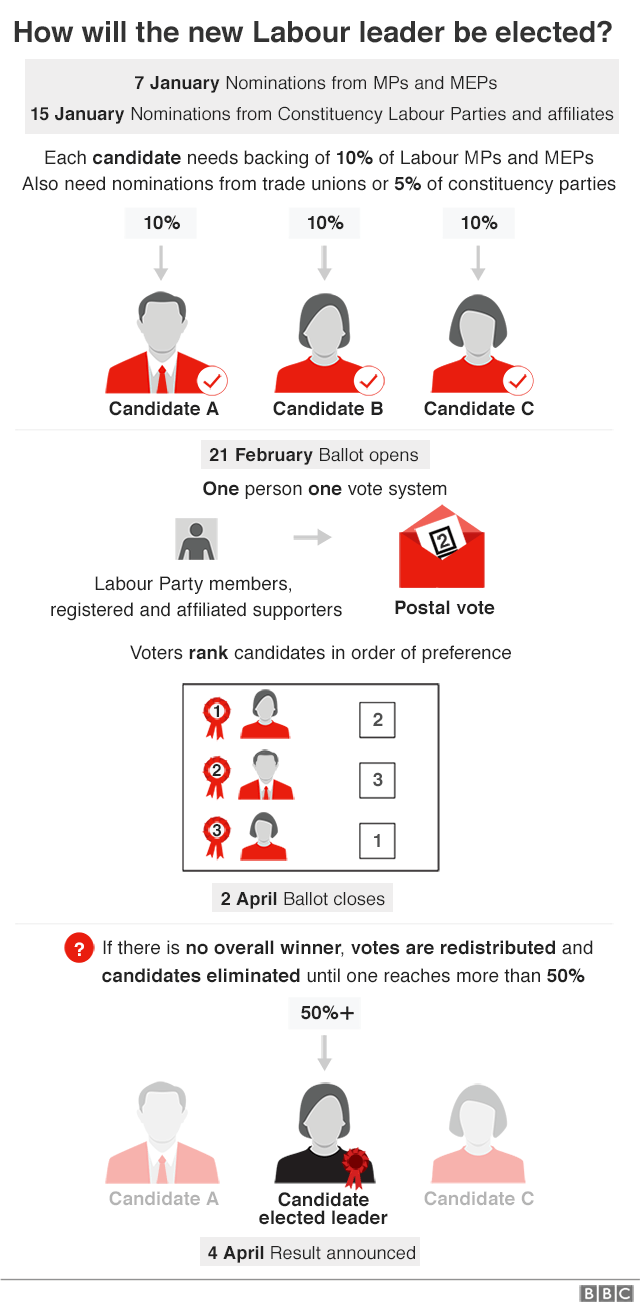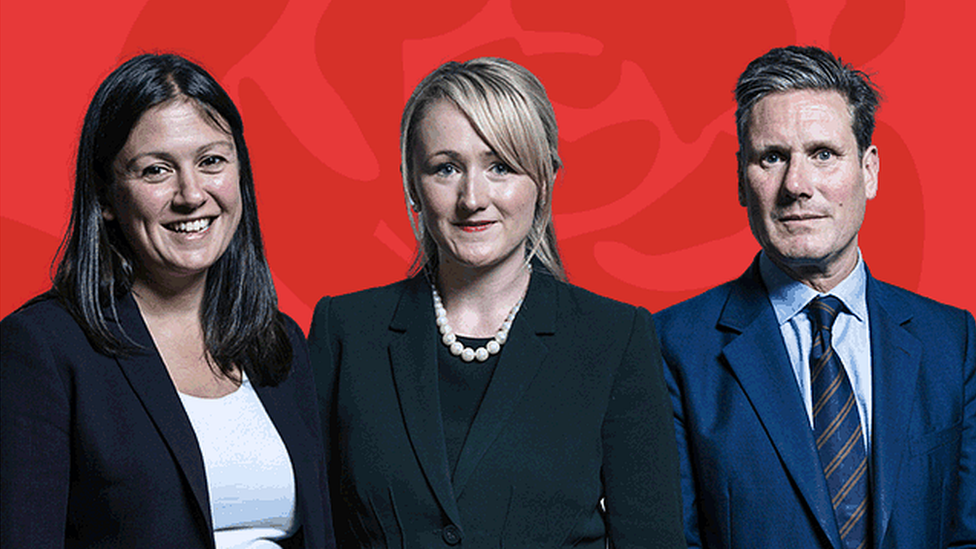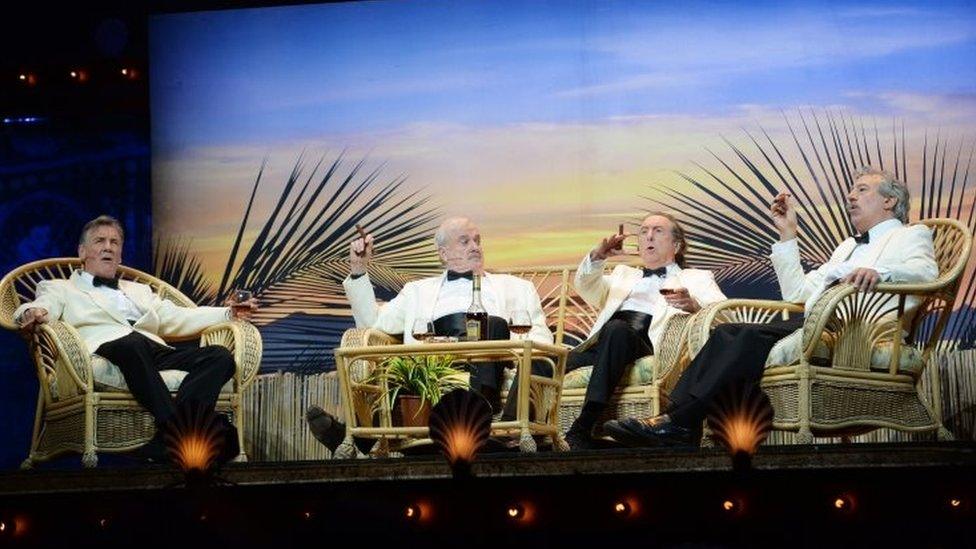Labour leadership: Candidates call for end to party splits
- Published
Four candidates remain in the race for the Labour leadership
The five Labour MPs standing for leader have said party divisions stand in the way of winning an election.
In the first hustings, Rebecca Long-Bailey, Emily Thornberry, Sir Keir Starmer, Lisa Nandy and Jess Phillips made their pitches to the membership.
Sir Keir said "we've had far too much division", while Ms Phillips said the "name-calling has been horrendous".
Party members in Liverpool questioned them on issues from Brexit to anti-Semitism.
It was the first in a series of events across the country before Jeremy Corbyn's successor is elected on 4 April.
The five candidates in the race for the Labour leadership set out how they would take on Boris Johnson.
Deputy leader candidates Rosena Allin-Khan, Dawn Butler, Richard Burgon, Ian Murray and Angela Rayner are also answering questions in a separate hustings.
The five leadership candidates all acknowledged that Labour had suffered from division and in-fighting.
"We have to be honest with ourselves that over the last four years we haven't been united as a party," said Mrs Long-Bailey.
Sir Keir said that the unity of the party "has to be modelled from the top". "Don't trash the last Labour government, don't trash the last four years," he said.
Although all the candidates criticised the party's record on anti-Semitism, Ms Phillips accused some others of "keeping quiet" on the issue.
"As somebody who was in the room, struggling for an independent system - at lots and lots of meetings - I have to say I don't remember some of the people here being in that particular room or being in those particular fights," she said.
Ms Nandy said a "collective failure of leadership at the top of the party has let us all down", while Mrs Long-Bailey, a Jeremy Corbyn ally, said: "We can never let that level of mistrust happen again."
Ms Thornberry said Labour "must be critical of a far-right government of Israel" but said that blaming Jews is "where racism begins".
'Democratic revolution'
Candidates were asked how they would bring the party and the country together over Brexit.
Warning of the threat of no trade deal with the EU at the end of the transition period this year, Ms Thornberry said the party needs "someone in this fight who has been on the right side all along".
Ms Nandy said Labour has allowed the Tories to divide people, pitting the young against the old and cities against towns, as they "airbrushed out the nuance".
She called for the Labour HQ to be moved out of London, as a "powerful symbol" of its commitment to empower regional communities.
Sir Keir urged the party to let go of the Leave and Remain labels and "focus on the future", while Ms Long-Bailey said the country needed a "democratic revolution" because voters disliked the centralisation of power in Westminster as much as Brussels.
Ms Phillips said the party needed to "start talking to people's hearts and talking to people in a language people hear and receive, because that is what Boris Johnson does".

Who are the leadership candidates?
Find out more about the candidates, including their early life, time before Parliament, record as an MP, and leadership pitch:

The hunt for a new Labour leader was triggered when Mr Corbyn stepped down following the party's fourth general election defeat in a row.
In order to make the final ballot, each of the Labour leadership hopefuls must secure the backing of unions and local parties.
The five contenders need the support of 5% of local parties or at least three affiliates - two must be unions - by 14 February to make the final ballot.
Members of the public who join the party or become affiliated supporters before 20 January will be eligible to vote in the contest.
What matters to members in this leadership election?
A YouGov poll of 1,005 Labour members for the Times, external on Friday suggested Ms Thornberry would go out in the first round of voting with just 3%, with Ms Nandy knocked out in the second round and Ms Phillips in the third, with most of her second preference votes going to Sir Keir.
The poll - which only includes full Labour members, and not others who are entitled to vote - indicates Sir Keir would beat Mrs Long-Bailey in the final round by 63% to 37%, once the other candidates have been eliminated.
It suggests Angela Rayner is on course to win the deputy leadership election in the first round with 57%.


- Published18 February 2020

- Published16 January 2020
- Published10 January 2020
